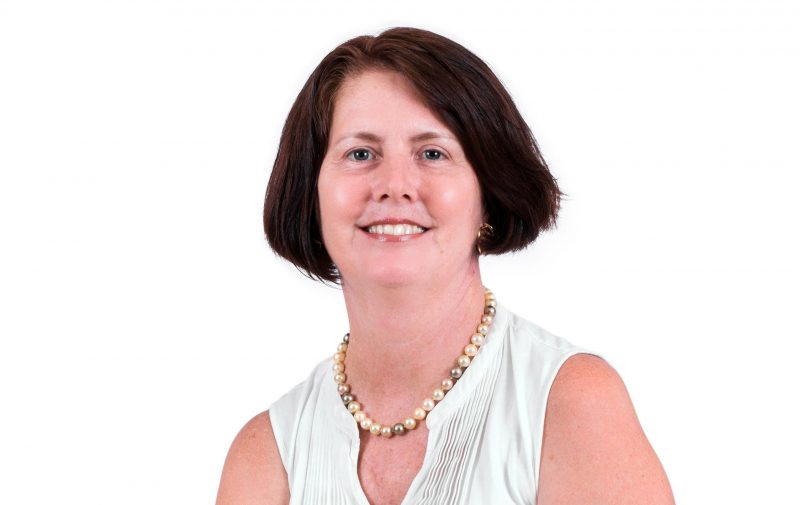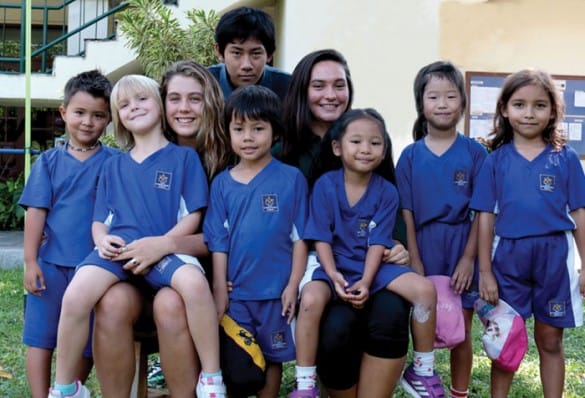Denise Walsh is the Head of Bali Island School and has been an educator for over 20 years. A dedicated professional, Denise has worked all over the world and focuses on empowering her fellow educators.
At what moment in your life did you realize you wanted to become an educator?
I remember truly realizing that I wanted to be a teacher when I started my student teaching semester in my last year in university. Before then, I was studying to be a teacher, but it was always something theoretical, more of a possibility than something tangible. The student teaching experience showed me how much I truly enjoyed working with students and being part of a school community.
Your first teaching job was as a humanities teacher. Can you share with us how you progressed from this role in 1987 to being the head of school today? Was it a natural progression for you?
No, it wasn’t a natural progression. I don’t think that our lives tend to unfold in any kind of linear progression. Instead, opportunities are presented, setbacks occur and choices are made which affect where we go in life.
A few of these turning points for me were: deciding to get my first Masters Degree in Educational Technology – something very rare in 1990!; deciding to take my first overseas position, which lead to the next; and deciding to continue my education even further and specialize in educational administration
You’ve led anything but a boring life, having studied in the UK and lived in Kuwait, Thailand, Qatar, Nanjing and Frankfurt before you made the move to Bali. What is it about expat life that you love so much?
I love working in international schools (SPK schools) and it was my work that took me to all of these places.
I love finding out about new cultures, meeting people from all over the world, and working with wonderful students and supportive parents.
I also love to explore each of the countries in which my family and I live. We generally spend at least the first year travelling within the country exclusively and learning as much as possible about our new home.
Do you feel settled in Bali? Would you call it home?
Yes, we do feel very settled and very happy here. We do refer to Bali as home. It is where we live and work as well as were our possessions are located. We have gathered furniture and art from all over the world and we ship it with us when we move. Therefore, within our home, we are surrounded by our own things and all the memories associated with them.
Of all the countries that you’ve lived and worked in, which has brought you the most excitement?
I suppose that my first move was the most exciting. I was young and hadn’t ever left the US before, so it was very new and exciting. However, I think that each of the moves my family has made has been perfect for that point in our lives, each offering something unique and suitable for our needs at the time.
One of your school’s core values is serving the community and being responsible world citizens. What do you believe it means to be a responsible citizen?
There are many aspects to this and it is integrated in our school through over 12 years of education. The main differences that I would highlight which would make someone a responsible world citizen and not just a citizen of any country are: the willingness to continually learn about others and their cultures, the ability to be open-minded and accepting of people’s differences, the willingness to take responsibility for the impact of their decisions (environmental, social, etc) and treating all people with respect and defending other’s rights as well as your own.
You follow the International Baccalaureate (IB) curriculum at BIS, which many teachers rave about. Can you tell us your thoughts on this style of teaching/learning?
All of the IB Programmes (the Primary Years, the Middle Years and the Diploma) provide a challenging and engaging curriculum for the students. Our teachers have high expectations of our students and our students are engaged in their own learning. The teaching within these programmes is student-centred, conceptually-based, collaborative and holistic. I have been working in schools which offer the IB programmes for over 20 years and I have seen all students benefit from the opportunities which they offer. I have two perspectives on the IB programmes, as an educator and as a parent, and I wouldn’t choose a different curriculum to work within or for my own child.
You pride yourself in empowering teachers – how do you achieve this?
I try to get to know them all and learn what parts of their job truly engage their passionate interest. Then I look for opportunities to match their passion with the growth aims of the school. I encourage people to work independently and to approach challenges from perspectives which might not occur to me and I do my best to acknowledge their contributions by thanking them and sharing any progress within the community. I think that this engages teachers and gives them true responsibility, which then empowers them to make a difference in our learning community.
Why is good communication so important in your line of work?
Good communication is the cornerstone of everything that we do. You can’t teach without communicating well, you can’t explain your thoughts or form good relationships. In order for our students to reach their potential, the teachers, parents and school community all need to work together to support them. This requires good communication between us all.
What do the majority of parents at your school do for employment in Bali?
Most of our parents are local small business owners or are involved in the hospitality industry. We have many hotel GMs and also several families from consulates as well. We also have noted a rising trend of families relocating from Jakarta.
With Bali being a place where young people can have a lot of fun (no age restrictions in night clubs/bars) is it challenging to discipline students, particularly high schoolers?
No, not at all. Our students are generally very well behaved and responsible. When they are with us during the school day and for events, there is no alcohol, so this kind of access doesn’t affect their school life. We also help them to make responsible choices by educating them about possible consequences of night clubs/bars etc. during health classes. We also work closely with the parents, who set parameters for their children concerning their behaviour outside of school time.
What is the main challenge you face on a regular basis in your job?
I never have enough time to do everything that I would like to do.
How would you describe your work ethic?
Committed and professional – I have the ultimate responsibility for the school and our students and I take this responsibility very seriously.
If you could be a novel, what kind would you be?
A mystery!
Thank you, Denise. To get in touch, please email: headofschool@baliis.net





